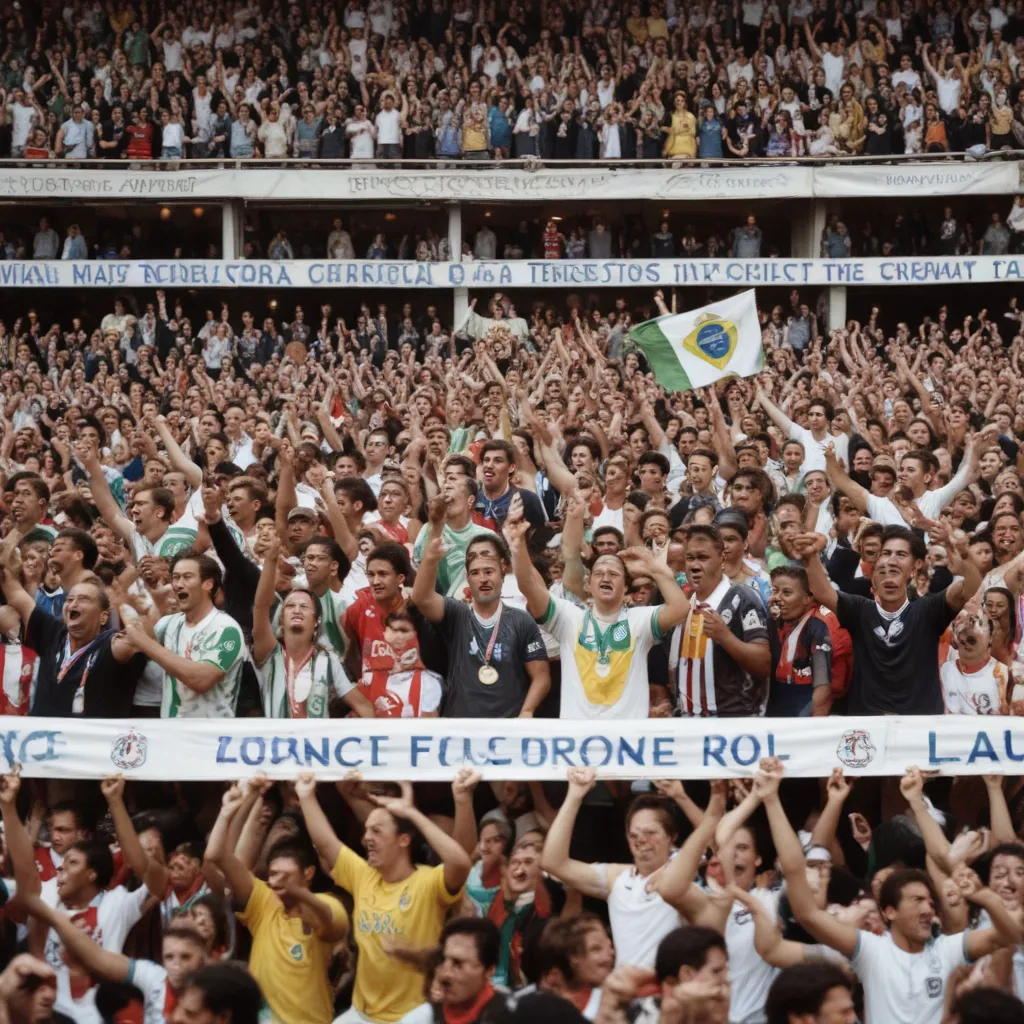
The Corinthian Influence on Brazilian Football
The Corinthian Club
The story of Brazilian football’s deep-rooted passion and distinct style can be traced back to the influence of an amateur club from London – Corinthian FC. Formed in 1882, the Corinthians embodied a set of ideals that would go on to shape the very fabric of the beautiful game in Brazil.
At their core, the Corinthians believed in the pursuit of excellence through sportsmanship and fair play. They shunned professionalism, preferring to uphold the purity of the sport and the camaraderie of the pitch. Their white shirts, black shorts, and white socks became a symbol of this unapologetic amateurism, a defiant stand against the growing commercialisation of the game.
The Spread of Corinthianism
In 1910, the Corinthians embarked on a tour to Brazil, bringing their ethos to the rapidly developing football scene in South America. It was during this historic visit that a new club was born in São Paulo – Corinthians Paulista. Inspired by their English counterparts, the Brazilian Corinthians adopted the same kit and commitment to the Corinthian spirit.
The diffusion of Corinthian ideals across the Atlantic would prove to be a watershed moment for Brazilian football. The emphasis on technical skill, creative expression, and a deep-rooted passion for the game took root, shaping the nation’s footballing identity for generations to come.
The Passionate Fans of Brazilian Football
Corinthian Supporters
The Corinthian influence extended far beyond the pitch, permeating the very heart of Brazilian football culture. Corinthians Paulista’s supporters became renowned for their unwavering loyalty and fervent devotion to their club. They transformed match days into electric celebrations, their chants and banners echoing the Corinthian ethos of camaraderie and community.
For the Corinthians faithful, the club represented more than just a team – it was a way of life. They embraced the club’s sportsmanship and fair play, seeing it as a reflection of their own values. The rituals and traditions that emerged, from the choreographed tifos to the pre-match ceremonies, solidified the club’s place in the hearts and minds of its supporters.
Football Culture in Brazil
The passion and fervour exhibited by Corinthians fans soon became a hallmark of Brazilian football as a whole. Across the country, supporters forged deep connections with their local clubs, seeing them as extensions of their own communities and identities. The rivalries between clubs in the same city or region took on an almost tribal significance, with fans proudly representing their allegiances.
Brazilian football stadiums became cauldrons of emotion, where the roar of the crowd and the rhythmic chanting created an atmosphere unparalleled in the sport. The fans’ unwavering support, their songs, and their colourful displays became as much a part of the game as the players on the pitch.
The Development of Brazilian Football
Early Years of the Sport
The arrival of football in Brazil can be traced back to the late 19th century, when the game was introduced by British expatriates and enthusiasts. Initially, the sport was played primarily by the upper classes, with clubs like São Paulo Athletic Club and Fluminense Football Club leading the way.
However, it was the establishment of the Corinthians-inspired Corinthians Paulista in 1910 that truly democratised the game, bringing it to the masses. The club’s commitment to amateurism and its emphasis on technical skill and creativity inspired a new generation of footballers, who would go on to shape the unique Brazilian style of play.
The Brazilian Football Style
The influence of the Corinthians ethos was evident in the way Brazilian football evolved. Players began to showcase their individual flair and technical prowess, weaving intricate passing patterns and unleashing dazzling dribbles that captivated audiences. The emphasis on creative expression, rather than pure physicality, became a hallmark of the Brazilian game.
Tactically, Brazilian teams embraced a fluid, adaptable approach, with players seamlessly transitioning between roles and responsibilities. The iconic 4-2-2-2 formation, with its emphasis on midfield control and attacking fluidity, became a symbol of the Brazilian style. Coaches like Telê Santana and Tele Santana would go on to refine and elevate this tactical philosophy, cementing Brazil’s reputation as a footballing powerhouse.
The Impact of Corinthian Ideals
Sportsmanship and Fair Play
The Corinthian spirit of sportsmanship and fair play has been deeply ingrained in the Brazilian game, transcending the pitch and shaping the very culture of the sport. Players and teams are expected to conduct themselves with the utmost respect for their opponents, upholding the values of the beautiful game.
This emphasis on ethical conduct has fostered a sense of camaraderie and mutual respect among Brazilian footballers. Even in the heat of fierce rivalries, there is an unspoken understanding of the importance of maintaining sportsmanship and fair play. This ethos has become a point of pride for Brazilian fans, who see it as a reflection of their national identity.
Community Engagement
The Corinthian ideals of social responsibility and community engagement have also found a strong foothold in Brazilian football. Clubs have become pillars of their local communities, actively supporting social initiatives, youth development programs, and grassroots football projects.
This commitment to giving back has resonated with the passionate Brazilian fan base, who see their clubs as more than just sports teams, but as integral parts of their social fabric. The symbiotic relationship between clubs and their communities has created a sense of belonging and pride that transcends the boundaries of the pitch.
The Corinthian influence on Brazilian football is a testament to the enduring power of ideals and the way they can shape the evolution of the beautiful game. From the technical mastery and tactical innovation to the unwavering passion of the fans, the Corinthian spirit continues to echo through the heartbeat of Brazilian football, inspiring generations of players, coaches, and supporters alike.

